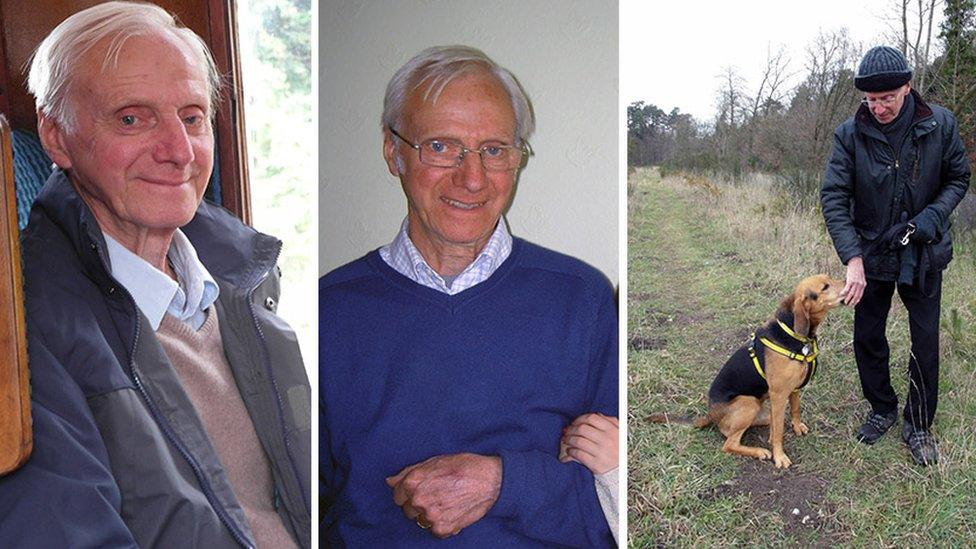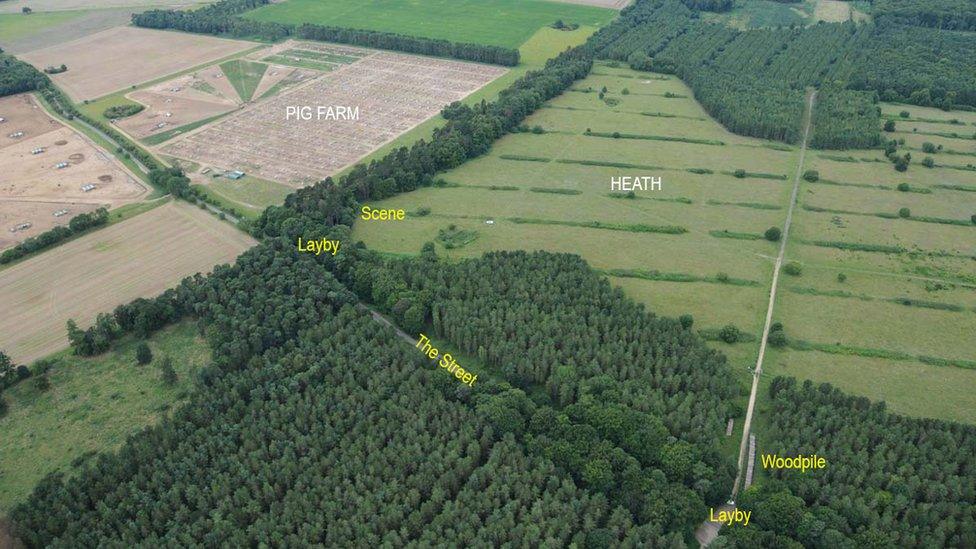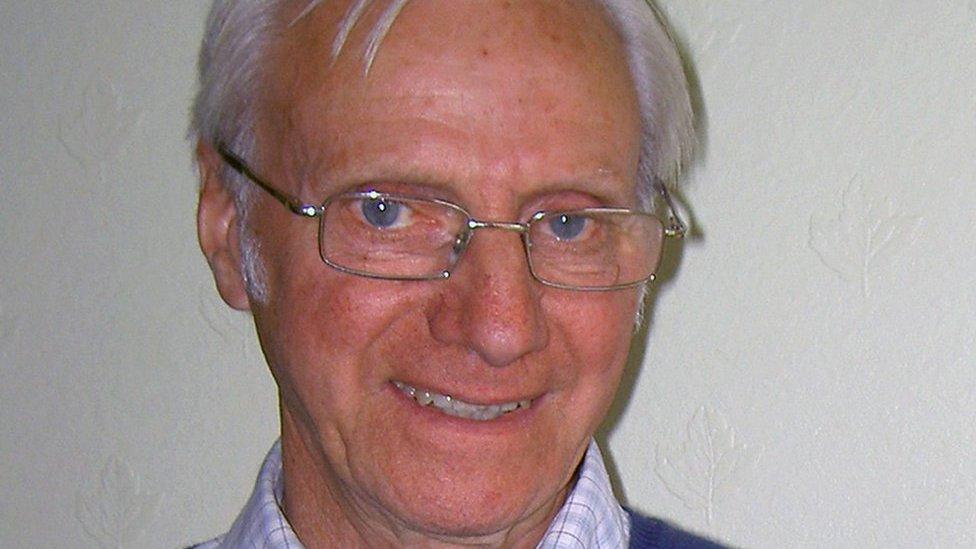Peter Wrighton murder trial: Accused 'wrote notes about killing'
- Published

Peter Wrighton's body was found near Fiveways Junction, three miles south of East Harling in Norfolk
A man accused of murder wrote notes about his "ascendance to greatness" through killing, a court has heard.
The prosecutor in the trial of Alexander Palmer, 24, said it was "no coincidence" he was in woodland where Peter Wrighton was stabbed to death.
The former soldier has admitted at Nottingham Crown Court to being in the area but denies murdering Mr Wrighton in East Harling, Norfolk, last summer.
His defence barrister said the notes were a "form of therapy".
Prosecutor Stephen Spence told the court this was a "random out of the blue killing" from a man who "had a weapon, had a motive and was in the location at the precise time".
Mr Palmer "had the desire and intention to kill dog walkers," he said.

Alexander Palmer denies murder, but admits to being in the area at the time of the attack
Forensic samples from the former soldier were discovered on a trouser leg belonging to the 83-year-old grandfather, who had been walking his dog when he was killed.
Referring to the samples, Mr Spence said the DNA evidence would have involved touching.
"Neither of these two people were known to each other," he said, and any idea that DNA was transferred via Mr Wrighton's dogs was "simply fanciful".
But the jury were told by David Spens QC, defending Mr Palmer, that the pathologist's evidence "points in one direction".
She believed Mr Wrighton was attacked from behind with the weapon in the killer's left hand; the accused is right-handed, Mr Spens added.
He told the jury not a spec of DNA was found in Mr Palmer's car.

Peter Wrighton's body was discovered on the edge of the heath by walkers
"How is that possible?" Mr Spens said, adding there was "no evidence the car had been freshly cleaned".
Of Mr Palmer's notes, the QC said he wrote them "as a form of therapy" used to "get the thoughts out of his head."
Earlier in the trial, the court heard Mr Palmer had told medical professionals a voice in his head called "Little Alex" instructed him to harm or kill people and that he had a "grudge against dog walkers".
Mr Wrighton's body was discovered with 45 knife wounds by dog walkers.
The trial continues.
- Published26 February 2018

- Published21 February 2018

- Published20 February 2018
